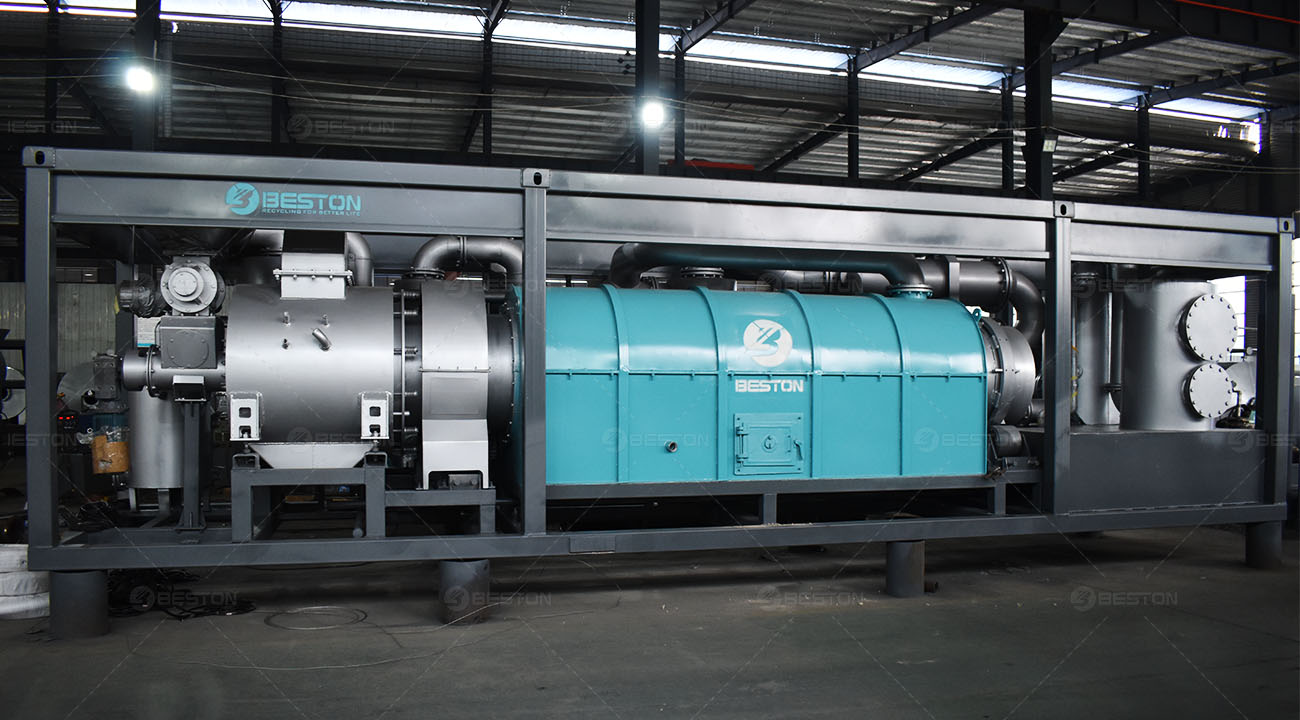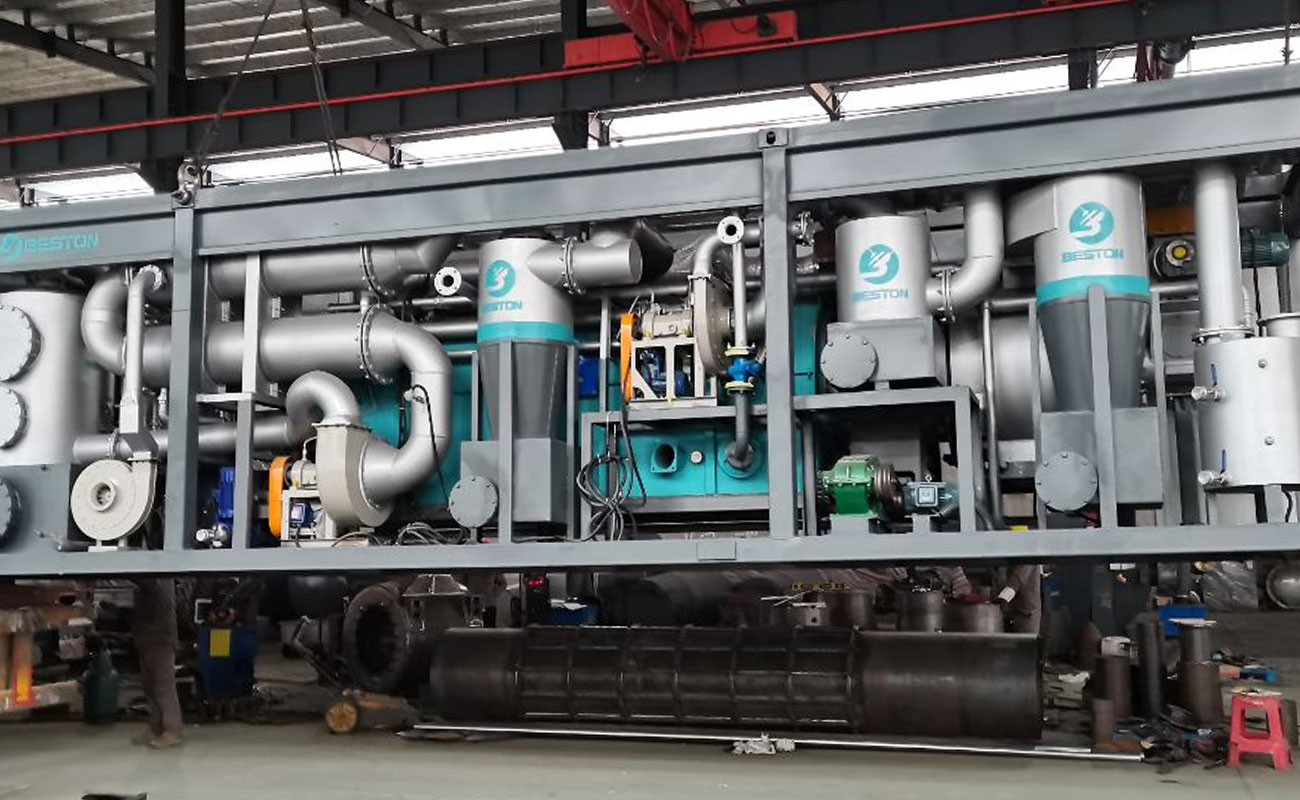Small-Scale Agricultural Waste Recycling Solution: Unveiling the Mobile Biochar Machine
In the intricate landscape of agricultural waste management, a transformative solution is on the horizon—the mobile biochar machine. This sophisticated apparatus redefines small-scale recycling, offering a nuanced and technical approach to converting agricultural waste into a valuable resource known as biochar.
The Agricultural Waste Conundrum
Agricultural activities generate a significant volume of waste, from crop residues to pruned branches. Conventional waste disposal methods often lead to environmental challenges and resource wastage. Enter the mobile biochar machine, an innovative technology designed to address this conundrum with efficiency and precision.
Decoding Biochar: A Carbon-Rich Marvel
Biochar, the star product of the mobile biochar machine, is not your ordinary substance. It is a carbon-rich material derived from the pyrolysis of organic matter. Pyrolysis, in this context, is the thermal decomposition of biomass in the absence of oxygen, resulting in the creation of a stable, carbon-enriched product.
The Mobile Biochar Machine: Technical Ingenuity Unleashed
Feedstock Preparation
The journey begins with the preparation of agricultural waste for the pyrolysis process. The mobile biochar machine incorporates advanced mechanisms for efficient feedstock preprocessing. This ensures uniformity and optimal conditions for subsequent pyrolysis reactions.
Pyrolysis Reactor
At the heart of the machine lies the pyrolysis reactor, a crucible of controlled thermal decomposition. Engineered with materials resistant to extreme conditions, the reactor ensures a precise environment for the transformation of agricultural waste into biochar. The absence of oxygen in this process is critical, preventing the complete combustion of organic matter and fostering the creation of stable carbon structures.
Mobile Design and Versatility
What sets the mobile biochar machine apart is its mobility and adaptability. The machine is designed to be transported to the heart of agricultural operations, where waste is generated. This mobile capability eliminates the need for extensive transportation of bulky agricultural residues, streamlining the recycling process.

Unveiling the Technical Advantages
Biochar as Soil Amendment
The biochar produced by the mobile machine isn’t just a carbon-rich substance; it is a game-changer for soil health. When incorporated into the soil, biochar enhances its structure, water retention capacity, and nutrient-holding capabilities. This translates into improved soil fertility and resilience, a crucial factor for sustainable agriculture.
Carbon Sequestration
Biochar’s carbon-rich nature contributes to a phenomenon known as carbon sequestration. By locking carbon in a stable form, biochar helps mitigate the impact of greenhouse gas emissions on the environment. The mobile biochar production equipment, therefore, becomes not only a waste management solution but also a contributor to climate change mitigation.
Navigating the Technical Terrain
Operational Efficiency
The mobile aspect of the biochar machine adds a layer of operational efficiency. By situating the machine directly within agricultural areas, the transportation costs and logistical complexities associated with waste management are significantly reduced. This efficiency translates into a more cost-effective and streamlined recycling process.
Scalability for Small-Scale Agriculture
In the realm of small-scale agriculture, the mobile biochar machine introduces a scalable solution. Its design allows it to cater to the waste management needs of smaller farms without compromising on the quality and quantity of biochar produced. This scalability ensures that the benefits of biochar utilization are not confined to large agricultural operations.
Overcoming Challenges: A Technical Odyssey
Technical Innovations and Continuous Improvement
The field of biochar production is not static; it is marked by continuous innovation. Ongoing research and development endeavors focus on optimizing the mobile biochar machine’s design, improving feedstock flexibility, and enhancing energy efficiency. These technical advancements position biochar production as a dynamic and evolving solution for agricultural waste recycling.
Community Integration
Deploying a mobile biochar machine requires more than technical prowess; it demands community integration. Localized initiatives that involve farmers and agricultural communities in the recycling process contribute to the success of biochar adoption. Educational outreach and training programs foster a deeper understanding of the benefits, ensuring the sustainable integration of biochar production into agricultural practices.
Conclusion: A Technical Triumph in Agriculture
In the landscape of agricultural waste recycling, the mobile biochar machine stands as a technical triumph. It isn’t just a machine; it’s a catalyst for change, transforming agricultural waste into a resource that enhances soil health, mitigates climate change, and contributes to sustainable farming practices.
As agricultural industries and communities navigate the delicate balance between productivity and environmental stewardship, the technical elegance of the mobile biochar machine offers a promising path forward. It is a beacon of innovation, addressing the challenges of waste management at their source and paving the way for a more sustainable and resilient agricultural future.

Comments
No comments yet. Be the first to react!